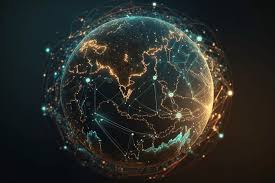The modern world is a complex mosaic created by a multitude of historical events, innovative civilizations, and influential figures whose contributions have profoundly shaped society. From the dawn of civilization to the technological advancements of today, this blog explores the pivotal moments and personalities that have defined the trajectory of human history, fostering the world we live in today.
The Cradle of Civilization: Ancient Societies
The roots of modern civilization can be traced back to ancient societies that laid the groundwork for politics, culture, and technology. Mesopotamia, often referred to as the “cradle of civilization,” flourished between the Tigris and Euphrates rivers around 3500 BCE. Here, the Sumerians developed the first known writing system, cuneiform, which allowed for the recording of laws, trade, and literature. The Code of Hammurabi set early legal precedents and introduced the concept of justice.
In ancient Egypt, monumental architecture, such as the pyramids, symbolized not only advanced engineering but also a centralized authority. The Egyptian civilization contributed to advancements in medicine, mathematics, and astronomy, influencing subsequent cultures.
Across the Indian subcontinent, the Indus Valley Civilization (circa 2500 BCE) showcased urban planning and advanced drainage systems, highlighting the importance of public health. These early civilizations established the foundations for governance, societal organization, and cultural achievements that still resonate in modern times.
Philosophical Foundations: Thinkers Who Transformed Thought
The intellectual legacy of philosophers has significantly influenced modern ethics, governance, and individual rights. Socrates, whose dialectical method encouraged critical thinking, laid the groundwork for Western philosophy. His student, Plato, further explored the nature of justice and the ideal state, while Aristotle analyzed various aspects of human behavior, governance, and ethics, providing a framework for future philosophical inquiry.
In contrast, Confucius in ancient China emphasized moral integrity, social harmony, and proper conduct in interpersonal relationships. His teachings became the bedrock of East Asian ethical thought and governance. Meanwhile, Buddha introduced concepts of compassion and mindfulness, shaping spiritual practices and philosophies that continue to influence millions today.
The exchange of ideas between these philosophical traditions laid the groundwork for modern democracy, ethics, and civil rights, underscoring the interconnectedness of human thought across cultures.
The Age of Exploration: Bridging Worlds
The Age of Exploration (15th-17th centuries) marked a transformative period in history, expanding the known world and connecting disparate cultures. Pioneers like Christopher Columbus, Vasco da Gama, and Ferdinand Magellan embarked on voyages that initiated global trade networks and cultural exchanges. Columbus’s arrival in the Americas in 1492 sparked widespread exploration, colonization, and the exchange of goods, ideas, and even diseases—known as the Columbian Exchange.
This period also had dire consequences for indigenous populations, leading to significant demographic changes and cultural upheaval. The introduction of new crops and livestock transformed economies, while the establishment of colonial powers reshaped political boundaries and international relations.
The Scientific Revolution and Enlightenment: Challenging the Status Quo
The Scientific Revolution (16th-18th centuries) fundamentally changed how humanity understood the natural world. Figures like Galileo Galilei, Isaac Newton, and Nicolaus Copernicus challenged long-held beliefs, advocating for observation and reason over dogma. Galileo’s advocacy for heliocentrism and Newton’s laws of motion reshaped scientific inquiry and laid the foundation for modern physics.
Simultaneously, the Enlightenment emerged, emphasizing reason, individualism, and skepticism of authority. Thinkers like John Locke and Jean-Jacques Rousseau proposed ideas about democracy, social contracts, and human rights that inspired revolutions across the globe, including the American and French Revolutions. The Enlightenment paved the way for modern political philosophy and the establishment of democratic governance.
Industrialization and Modernity: The Rise of Technology and Social Change
The Industrial Revolution (18th-19th centuries) marked a seismic shift in human society. Transitioning from agrarian economies to industrialized urban centers, this period introduced innovations like the steam engine and mechanized textile production. Figures such as James Watt and Eli Whitney played crucial roles in advancing technology and efficiency.
This transformation led to significant social changes, including urbanization and the rise of the working class. However, it also resulted in harsh labor conditions, prompting movements for labor rights and social reforms. The emergence of socialism and labor unions reflected the growing awareness of workers’ rights, laying the groundwork for future labor movements
Global Conflicts and Change: The 20th Century
The 20th century was defined by monumental conflicts that reshaped geopolitics. World War I and World War II brought unprecedented destruction and led to the rise of superpowers. The Treaty of Versailles, which ended World War I, sowed the seeds for future conflicts, while World War II resulted in the establishment of the United Nations and a new world order.
The subsequent Cold War introduced ideological battles between capitalism and communism, influencing global alliances and shaping national identities. Events such as the Cuban Missile Crisis and the Vietnam War highlighted the intense rivalry between the superpowers and their impact on global stability.
Technological Advancements and the Information Age
The late 20th and early 21st centuries have witnessed rapid technological advancements that have transformed daily life. Innovators like Steve Jobs, Bill Gates, and Elon Musk have revolutionized industries, from computing to space exploration. The rise of the internet and social media has democratized information, reshaped communication, and given rise to new forms of activism.
The Information Age has ushered in unprecedented connectivity and access to knowledge, influencing politics, culture, and personal interactions. However, it has also raised questions about privacy, misinformation, and the digital divide.
Conclusion
The modern world is the product of centuries of evolution, shaped by key events, civilizations, and influential figures. Understanding this rich tapestry of history allows us to appreciate the complexities of our present and the challenges we face in the future. By learning from the past, we can navigate an ever-changing global landscape and continue to shape the world for generations to come. Together, let us embrace this journey of discovery and understanding, honoring the legacy of those who came before us.

